It was a done deal. That’s what everyone thought. It was even on the Government’s published Rail Franchise Schedule last October.
Stagecoach would be handed a two-year contract to keep on running South West Trains. The company would guide one of the UK’s most complex franchises through the upheaval caused by closing four platforms at Waterloo to make them longer, by shunting services into the long-redundant international station alongside. Stable management would minimise the impact - the people in charge would know all the potential pitfalls.
Wrong! Instead, halfway through ripping Britain’s busiest railway terminus to shreds and reconstructing the constricted station throat, there is every chance that the management team will be ripped out, too.
Without passing comment on today’s team, is that really such a clever idea?
In the place of a short Direct Award, there will be an open competition for a longer-term franchise. And as South West Trains carries 220 million of Britain’s most well-heeled commuters each year, expect every half decent train operator in Europe to sharpen its pencils for this one.
South West Trains makes money… lots of it. There is no subsidy, so the Government will expect every bidder’s balance sheet to show whopping premium payments, alongside a comprehensive agenda to ease overcrowding against a backdrop of rapid growth in passenger numbers.
“It has become clear that we are unable to reach agreement for the anticipated Direct Award,” wrote Secretary of State for Transport Patrick McLoughlin in a letter to stakeholders. He continued: “A franchise competition will ensure that passenger benefits are delivered beyond 2017 in a way that achieves best value for taxpayers, and will give us an exciting opportunity to plan services into the 2020s.”
Reading between the lines, McLoughlin clearly felt that Stagecoach was not offering him sufficient value for money. And presumably by a very wide margin, because operationally there is every reason to stick with the team led by the very well-respected Tim Shoveller during a period of upheaval.
Stagecoach thought it had offered a good deal. “Our Direct Award proposals sought to build on the extensive improvements delivered under our operation of the franchise since 1996, providing more benefits for customers, good value for taxpayers and an appropriate return for investors,” read the company statement.
Instead, the Government will merely take up its option of extending the current concession by six months from February to August 2017, before a new franchise starts.
The company statement concluded: “Stagecoach does not currently expect South West Trains to earn a significant profit during any extension period.” The share price promptly dipped by 2%.
So is that the bottom line? Stagecoach could not get enough profit from a two-year deal?
Steve Stewart, the group’s director of communications, chooses his words carefully: “Why were the talks disappointing? There was a significant difference between ourselves and the Department for Transport in terms of the financial evaluation of our proposals.
“This is one of the most complex franchises in the country. And in the next few years a lot is going on in terms of capacity enhancement, in terms of infrastructure around Waterloo to add platforms. And there is the introduction of the new trains that we have procured.
“It needs a lot of management experience to run it, and we have built that experience over 20 years - we have been the incumbent since privatisation. In that time, passenger numbers have more than doubled.”
Stagecoach started initial negotiations for the two-year deal two years ago. The discussions have therefore already lasted as long as the franchise was intended to be in place.
When those talks began, the massive work at Waterloo was not yet agreed, and the extra rolling stock had not been ordered. So what Stagecoach considered an attractive proposition then would not necessarily be so attractive today.
Less than a month before the announcement, Stagecoach and Network Rail had announced their divorce - or at least their separation by mutual consent - after a marriage lasting three years. Their “Deep Alliance”, in which a single management team operated tracks and trains out of Waterloo, had fallen apart… to the disappointment of both parties.
SWT Managing Director Tim Shoveller has returned to managing just the trains, and Network Rail has put a new route management team in place. But the couple retains joint custody of the child - the joint control room at Waterloo remains.
Stewart insists that the split was unrelated to the failure to secure a new franchise. Insiders said it had more to do with Network Rail’s failure to devolve power sufficiently to individual routes - a centralised infrastructure was at odds with Stagecoach’s desire for a local partnership taking local decisions.
But a senior rail industry source with first-hand knowledge commented: “Train companies can be seen by the Department as too successful. Stagecoach has had a good run recently, getting East Coast.
“I wonder if Stagecoach Group might have been tarred by the collapse of the Deep Alliance with Network Rail. It was very much seen as the great hope for the future. If I were in the Stagecoach commercial team, I’d have been temped to think I had the DfT over a barrel, and played tough. But now they have lost their unique selling point.
“It’s not as if there aren’t other capable managers available - FirstGroup understands new rolling stock and National Express is hungry, and both need franchises more badly than Stagecoach.”
The RMT union - predictably - seized gleefully on the Government announcement as further evidence of the failure of the privatised railway.
“For some time now we have been told that DfT would be agreeing a Direct Award with SWT,” said General Secretary Mick Cash. “But now this has been abandoned, and the chaos and confusion over rail franchising that was a permanent feature of the last Government is continuing only months after the election.
“It is also a shocking indictment of Government policy that a company that has been running the franchise for 20 years has not been entrusted with the service going forward. That speaks volumes.”
The new franchise will start while South West Trains is in the middle of great upheaval. Christian Roth, the company’s engineering director, has described it as delivering the same capacity improvements as Thameslink for a tenth of the cost and in a quarter of the time.
The alterations at Waterloo International are due for completion in late 2017. When the suburban platforms 1-4 are rebuilt, they will handle 20 ten-car trains an hour, compared with today’s 17 eight-car trains. When? Summer 2017.
The 30 new five-car Siemens Desiro City Class 707 EMUs, which offer 20% higher capacity than today’s Class 450 Desiros, are now under construction. When do they enter service? Between July 2017 and January 2018.
Spot a theme? If Stagecoach loses this franchise to a rival operator, this will be a very messy handover. Traditionally the incoming boss dumps the previous executive team as he walks through the door, but here a new managing director would be walking into a building site that he had no hand in planning.
To introduce a little frisson for the new boss, the Class 707s have been built with Driver Only Operation in mind. SWT has made it clear that guards will remain, but would others do the same?
The overwhelming challenge for the new franchise will concern overcrowding. Passenger numbers into Waterloo will continue to grow at around 7% a year for the foreseeable future. Grand plans for Crossrail 2 will eventually help… but not in the medium term.
The already committed work at Waterloo will help boost peak-time capacity by nearly a third. But by the end of the next franchise, that still will not be enough.
With this in mind, Shoveller has been openly considering the idea of double-deck commuter trains for outer suburban peak services.
Network Rail’s draft Wessex Route Study says that double-deck trains may address the capacity gap beyond 2019 on main line long-distance services. But it also suggests that no double-deck vehicles in use today in other countries would be suitable for SWT. So a new design of EMU would be required.
The study says 26-metre vehicles with doors at the vehicle ends would provide a 50% increase in floor area compared with today’s Class 444 Desiros. They could operate from as far out as Southampton. But a small fleet of bespoke rolling stock would come at a price - something that could dissuade budget-conscious franchise bidders.
Reducing dwell times will also be a priority. But double-deck trains make for longer dwell times, because more passengers are passing through the same number of doors.
A 30-second dwell time is equivalent to a 90mph passenger train travelling three-quarters of a mile (say 750 passenger miles). If the dwell time rises to three minutes, the cost is 4,500 passenger miles. So this equation is far from simple. And that is before considering the track lowering that will be required beneath bridges and through the tunnel at Micheldever.
Beyond 2019, a new flyover at Basingstoke will be needed to separate conflicting movements, while a dive-under at Woking for the Guildford and Portsmouth line is also proposed. There would be improvements to the track between Basingstoke and Eastleigh, and station alterations at Clapham and at Guildford. How will these be funded?
Rival bidders may also consider Driver Only Operation (DOO) to keep costs down.
Years ago, Stagecoach put up mirrors at some stations in preparation for DOO. But Sir Brian Souter did a deal with the unions and promised to keep a guard on every service, including on those trains that were capable of operating without one. It was a deal he never regretted - industrial relations on SWT have been better than on many other franchises.
Customer service scores in the National Rail Passenger Survey have also held up well, despite overcrowding with passengers standing throughout the 45-minute journey from Basingstoke and even during the hour-long trek from Reading.
More issues remain further from London. The route between Southampton and Portsmouth is approaching full capacity. The Class 158/9 DMU fleet in Salisbury remains impressively reliable, but by the end of the next franchise the trains will be very tired.
SWT plans big timetable changes on the West of England route from December. Yeovil will get a half-hourly service (an extra eight trains a day) by extending services that previously terminated at Salisbury. A connection between Yeovil and Yeovil Pen Mill will be restored, with services for the first time since Beeching. And Bruton and Frome will get their first-ever through services to Waterloo.
These are big deals for Somerset, and it won’t be easy for a rival operator to top that. The single-track line west of Salisbury is filling up, and the rolling stock will be fully utilised.
Almost every constituency served by South West Trains is Conservative. Labour holds just one SWT seat - in Southampton. The Liberal Democrats now have none.
Maria Miller, the former cabinet minister who holds Basingstoke, has formed a group of MPs along the South West Main Line. In early July she met Transport Minister Claire Perry to demand an end to what she has labelled “cattle class travel” on SWT. And she has welcomed the decision not to give Stagecoach the job for another two years.
“Basingstoke residents face unacceptable levels of overcrowding on trains every day, with standing room only at peak times,” she says.
“We need a 60% increase in passenger space on Basingstoke trains if they are to cope with increased numbers anticipated in the next 25 years. Basingstoke needs more, faster, longer trains now, with WiFi that works. We also need to see an increase in the reliability of train links to Reading and west through to Salisbury.
“Basingstoke into Waterloo is the only part of the entire British train market to make a profit,” she claims, although other operators may disagree with her assertion.
“Yet we have seen some of the lowest levels of investment in the country. This has to change.”
Richard Drax, MP for Dorset South, has also been lobbying for more investment. In the House of Commons in July, the former BBC reporter pressed for an upgrade to the power supply west of Bournemouth.
Currently SWT can run only five-car trains to Weymouth, one at a time. Put more trains on the track and, like a model railway with two trains drawing the same limited power, they will move more slowly and eventually just stop. The power supply was installed during the 1980s, when it was not anticipated that there would ever be a need for more or longer trains.
With regard to the new franchise, McLoughlin has told stakeholders: “A key part of this process will be a full public consultation that will invite passengers and stakeholders to tell my Department what they want to see.”
All good proposals will certainly require investment in infrastructure. Rarely does a week pass without a signal or track circuit failure in the Wimbledon area. The infrastructure is worn, and working at full stretch. More trains run between Clapham and Waterloo every hour now than will run on the completed Thameslink tracks. That is without Thameslink’s £5 billion makeover, and before the new capacity enhancement project even starts.
Stagecoach is certainly not going without a fight. “We will be bidding for a new franchise, and we believe we are in a strong position,” confirms Stewart.
“There should be no reason why opting out of the short-term deal should count against us. At some point the franchise was always going to be re-tendered. If it were not for the West Coast franchising issues back in 2012, we would have been looking at 2017 anyway.
“It is an attractive franchise, one of the most high-profile in the UK. We will submit a powerful and attractive bid.
“The process tends to take about 18 months. Work backwards from an autumn 2017 start date. We’ll expect some news before too long.”
There is a precedent. FirstGroup handed back the keys to the Great Western at a seven-year break point in its ten-year contract. Years later, it is still there, securing a further three and a half-year deal in March 2015. First has also been in place since privatisation in 1996 and is now managing a period of upheaval.
Competition will be strong. SWT operates 1,600 trains a day and manages more than 200 stations. It also covers the most wealthy commuter region in the country - as long as the economy of central London thrives, it practically guarantees that the rapid rise in passenger numbers will continue.
And it is one of only two rail routes in the country capable of operating entirely without government subsidy across track and trains (East Coast Main Line is the other). So a deal involving large premium payments to the Government is anticipated.
Everyone will recognise that the timing is far from ideal. It was not planned to be this way. But in a few months, the bidding battle will commence.
- This feature was published in RAIL 780 on August 5 2015

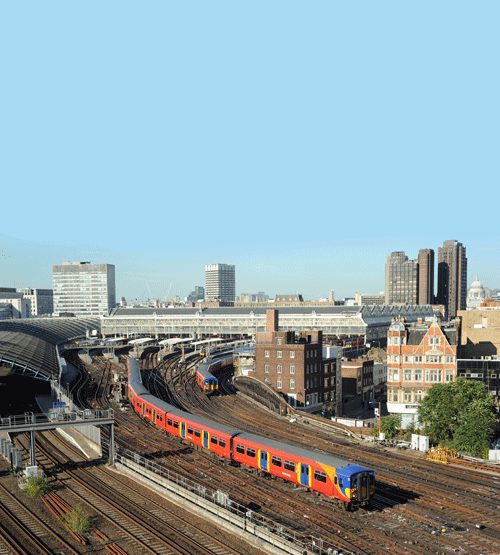
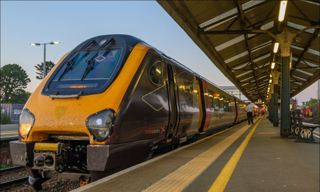
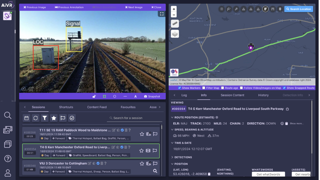
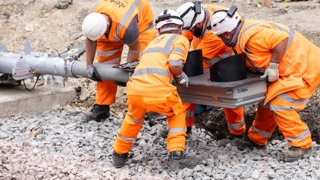
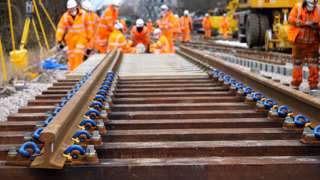










ALAN JOHNSTON - 03/07/2016 23:47
HOW BRANSON HAS GOT AWAY OF WHAT HE HAS BEATS ME HE NOW HAS EVERY LINE GOING NORTH HE CAN AND DOES CHARGE WHAT HE WANTS.